Voices of Sport: Richie Benaud - The peerless Australian was the backdrop to our cricketing summers for generations
In our weekly series, Yahoo Sport’s Nick Metcalfe features a famous voice of sport. This week, the legendary cricket commentator Richie Benaud goes under the spotlight. If you’d like to have your favourite profiled in this series, please let us know in the comments section.
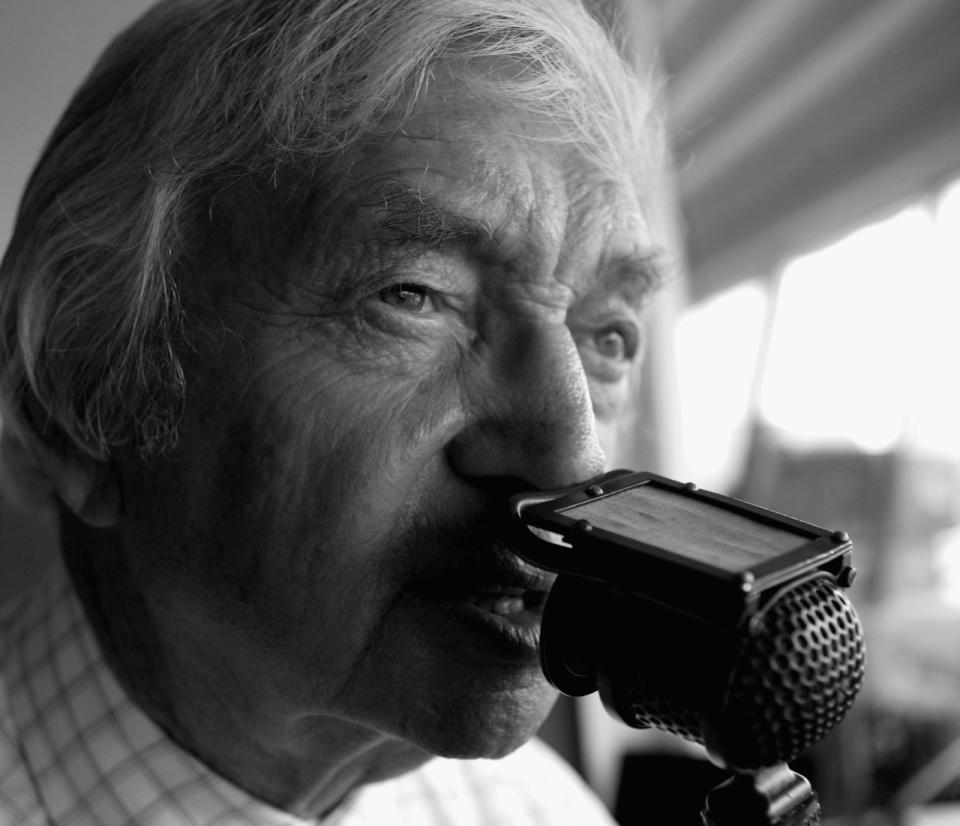
Morning everyone.
Richie Benaud is quite simply one of the finest sports commentators of all time.
The Australian’s contribution to cricket, and the way generations of us enjoyed the sport, was profound.
When he died last year, one newspaper called him ‘cricket’s permanent witness’. When you consider Benaud either played in or watched more than 500 Test matches, it’s pretty much the perfect moniker.
The years and the decades came and went, but that unmistakable, irreplaceable character was still always there watching on. Calling the game brilliantly, in that authoritative, laconic, peerless style of his.
Benaud’s life in cricket began long before he became a broadcasting great. I remember he once revealed, much to his own considerable enjoyment, that as he got older youngsters used to ask him whether he had ever actually played the game.
Benaud had played it of course, and quite brilliantly. Making his first class debut for New South Wales as a teenager, he established himself as a terrific leg spinner and fine batsman.
In January 1952, Benaud made his Test debut at the SCG. It was the start of a 12-year period playing for his country, including a long spell as captain. When he retired from international cricket in 1964, Benaud had claimed 248 Test wickets and scored more than 2,000 runs.
It was typical of the man that he had already thought about his life after playing, taking a BBC presenter training course in 1956.
He wasn’t short of influences and inspirations at the time, with the likes of Dan Maskell, Henry Longhurst and Peter O’Sullevan already becoming masterful voices in their specialist sports.
Benaud made his BBC Radio debut in 1960, and moved into television soon after. And for millions of cricket fans, he will always be remembered first and foremost as a truly great voice of the game.
As soon as he spoke for the first time in the day - invariably with a simple ‘morning, everyone’ - you just knew watching at home that you were in the safest hands. It’s Richie, everybody. Nothing to worry about here. We won’t go wrong with Richie. Like a benevolent, sometimes eccentric uncle, he became the backdrop to all our summers.
That was definitely the number one season for Benaud, summer. Indeed, you have to admire a man that saw so few winter’s days in his time. When the weather turned a bit iffy here, with autumn taking hold, he simply hot footed it back to Australia to work for the Nine Network - or Channel Nine as it was commonly known - and enjoy six months of warmth.
Sometimes, you would know Benaud was on duty when you tuned in and heard nothing. If ever a commentator understood the power of silence, it was Benaud. Minutes would pass without him saying much at all. Then he’d hit you with a pearl of wisdom. He was never one to waste his words.
As he once told the BBC, it was that course in the 1950s that drummed into him that he should only speak if it genuinely added something to the pictures.
Towards the end of his career, he explained: ‘My mantra is - put your brain in gear and if you can add to what’s on the screen then do it, otherwise shut up.’
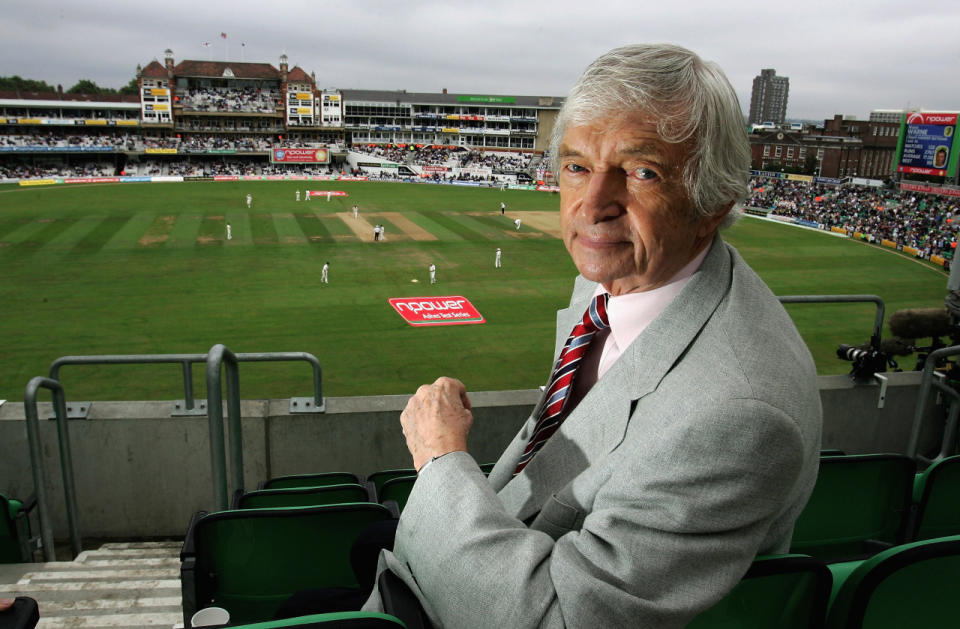
Benaud didn’t become just a familiar voice during long days of televised Test cricket on the BBC, but also the face of the nightly highlights programme.
He enjoyed a similar role in Australia, as the main man at Channel Nine. In fact it was Benaud’s enthusiasm for the controversial World Series Cricket in the 1970s that helped establish coverage of the sport on the channel. The brainchild of media magnate Kerry Packer, the breakaway tournament featured stellar names, coloured clothing and floodlights.
When Benaud presented nightly highlights Down Under, it wasn’t just a case of a quick hello and on with the action. On many occasions Benaud acted as a voice piece for the game. Even its guardian in a way. Look at this perfect example from 1981.
Benaud was reacting to a dramatic and highly controversial finish to a one-day international at the MCG, when Australia’s captain Greg Chappell instructed his younger brother Trevor to deliver the final ball underarm, therefore preventing Brian McKechnie from attempting to hit a six to tie the game.
‘Let me just tell you what I think about it. I think it was a disgraceful performance from a captain who got his sums wrong today and I think it should never be permitted to happen again. We keep reading and hearing that the players are under a lot of pressure and that they’re tired and jaded, and perhaps their judgement and their skill is blunted. Well, perhaps they might advance that as an excuse for what happened out there today. Not with me they don’t. I think it was a very poor performance, one of the worst things I have ever seen done on a cricket field. Good night.’
No matter what kind of dramatics the game threw up, Benaud tended to come up with a line that stuck in the memory.
England looked thoroughly beaten in the 1981 Ashes Test at Headingley when Ian Botham began to produce extraordinary heroics with the bat. One of Botham’s huge sixes during his unbeaten 149 was accompanied by these immortal words from the commentary box.
‘Don’t even bother looking for that, let alone chasing it. It’s gone straight into the confectionery stall and out again.’
How did Benaud make that line such a memorable one? Pure voice. Pure timing. Pure brilliance.
I can honestly say that I personally don’t recall Benaud delivering a disappointing performance. He was just the voice of calm, unflappable authority, year after year, whether we saw him on screen in one of his famous jackets, or just heard those timeless tones as we watched the action.
He became totally synonymous with BBC coverage of cricket, at a time when the corporation broadcast pretty much everything that mattered in the game.
Great players, dramatic Test series, memorable county cup finals, Benaud was there for them all. When Mike Gatting was bamboozled by an incredible first ball in Ashes cricket from Australian leg spinner Shane Warne in 1993, Benaud found the words to somehow make sense of the moment.
‘He’s started off with the most beautiful delivery. Gatting has absolutely no idea what has happened to it… he still doesn’t know.’
Throughout this time, there was always widespread mimicry of Benaud. Which one of us can say we haven’t at one time or other tried to do an impression? Most of us have done it hundreds of times. You’ll probably do it again as you read this. ‘Morning Tony, morning everyone.’ Or maybe a ‘two twenty two for two.’ You know the drill.
The Twelfth Man, a satirical comedy series based on the Channel Nine commentary team, became a cult hit. Comedian Billy Birmingham made Benaud the focal point of it all, with his choice of jackets - the cream, the white, the off-white, the ivory, the bone, the beige - and his vineyard in France. Not to mention him commentating his way through everything in life, even mundane tasks like making toast in the morning.
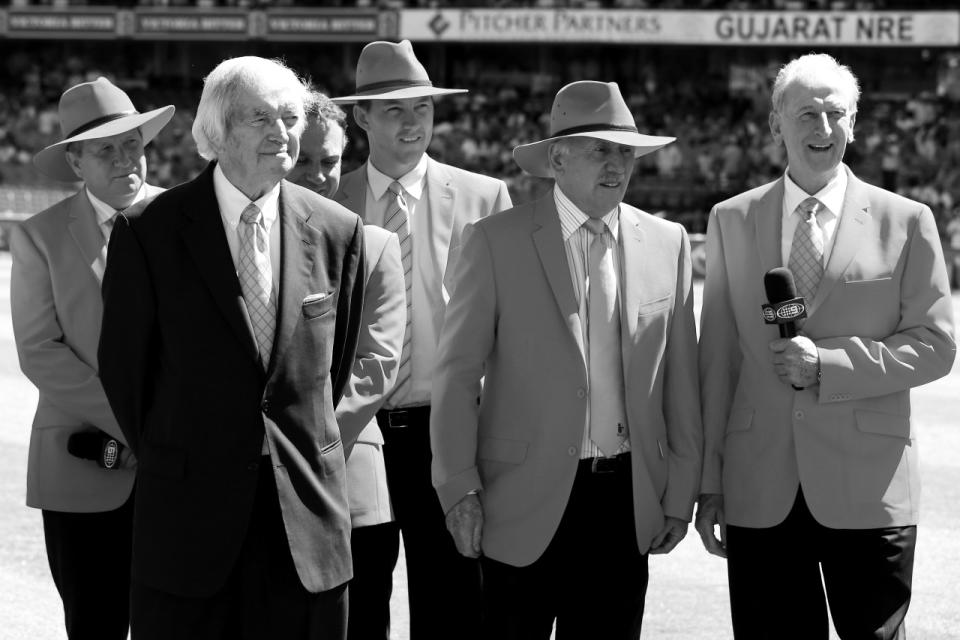
Benaud was like royalty Down Under, but he was huge in Britain too. In fact, we didn’t even really think of him as Australian. He was just Richie.
Needless to say, he never showed the slightest hint of bias to any country, even when Australia began to dominate world cricket in the 1990s.
He also didn’t really hark back much to the past; to his own career, or to any supposed bygone age. I mentioned earlier how youngsters used to ask Benaud if he played the game. That was largely because he didn’t reference his time in the middle. He always seemed to enjoy what was happening at that time, and what was to come in the future. The glory of the game, if you will.
When the BBC surprisingly lost rights to screen live domestic cricket to Channel 4 in the late 1990s, the newcomers just couldn’t pass up the chance to let Benaud switch sides. He was part of the furniture of the game here.
Unsurprisingly nothing really changed but the channel. Benaud was still at the centre of the sport on television, its very heartbeat.
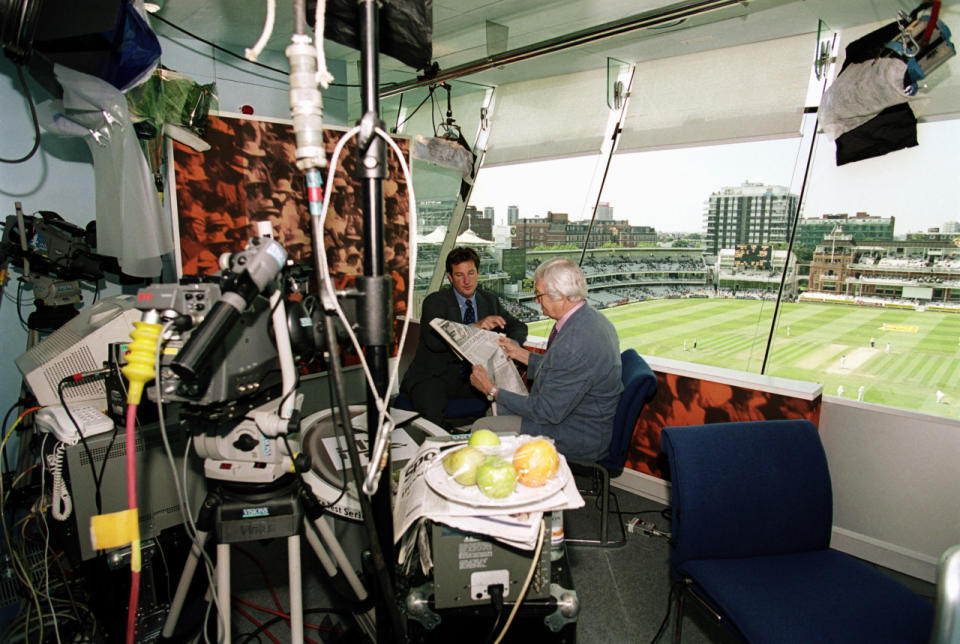
Channel 4’s association with cricket lasted until the 2005 Ashes series. Sky, which had long covered the sport including England’s overseas tours, swooped to take live domestic rights. With Benaud being a fully committed ‘free to air’ man, it was announced his time as a commentator in England was coming to an end.
It became an epic summer to bow out in, with one of the most memorable series ever played, an incredible battle that saw four of the five matches go right to the wire. Huge audiences were tuning in, and Benaud was the perfect man to bear witness to such great theatre.
There was a genuine sense of sadness during the last match of the series at The Oval. The end of an extraordinary era in broadcasting in this country. Before his final stint behind the microphone, he was given a touching standing ovation from the crowd.
As that final stint came to an end, he thankfully didn’t let the moment pass without some special words. And, fittingly, it was the actual sport that still came first.
'Time to say goodbye. Thank you for having me. It’s been absolutely marvellous for 42 years, I’ve loved every moment of it, and its been a privilege to go into everyone’s living room throughout that time. What’s even better, it’s been a great deal of fun… but not so for the batsman (as Kevin Pietersen is bowled by Glenn McGrath).
Benaud carried on working for Channel Nine in Australia, and could still at times be heard on free to air TV here, like the BBC highlights of the 2006/07 Ashes series Down Under. Benaud also worked on Channel Five’s team for their highlights programmes during the 2009 Ashes series.
Sadly, he was involved in a car crash in 2013, and then revealed he was receiving treatment for skin cancer in 2014. Benaud died in April, 2015, at the age of 84. The world of cricket had lost one of its very best friends.
Australia’s Prime Minister Tony Abbott offered Benaud’s family a state funeral - an offer that was declined - which gives you some idea of the affection and respect of which he was held in the country.
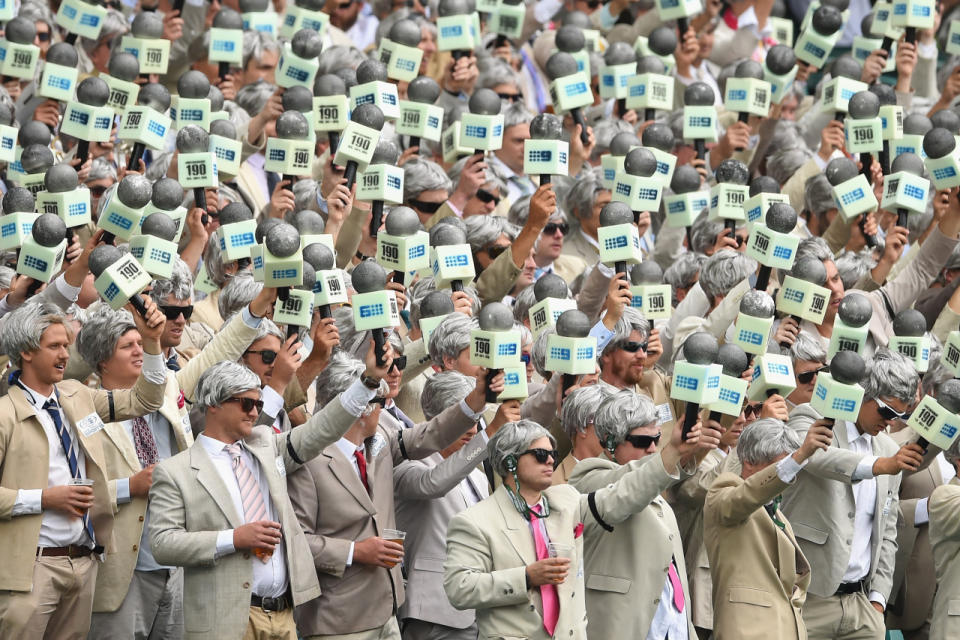
The tributes to Benaud flooded in. Warne said: ‘For me it was an honour and a privilege to call you a close friend and mentor.’ Former England batsman Geoffrey Boycott called him a ‘wonderful cricketer, great captain, master craftsman commentator and top man.’
And BBC cricket correspondent Jonathan Agnew perhaps summed up Benaud best for all of us: ‘He was the face of my childhood and for millions of others. He was cricket on the TV in England. He was our Richie - and that is the ultimate compliment for an Australian.’
I’m going to end with this wonderful poignant piece of video from Channel Nine, shown during Australia’s Boxing Day Test against India in 2014, just a few months before Benaud died. Doesn’t it say so much about the man? Meticulous, decent and warm. And just so special.
Benaud truly was one of a kind. Cricket will never quite be the same without him.


